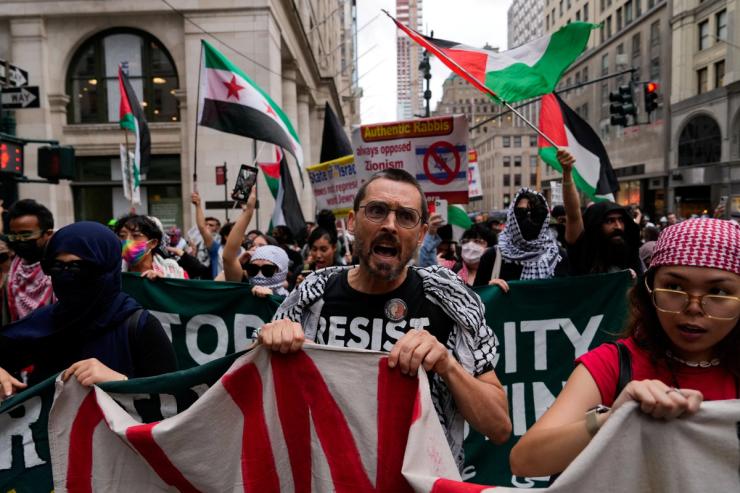The News
Some Jewish organizations at US universities have voiced concern about the potential resumption of campus protests against Israel’s war in Gaza as the start of the academic year nears.
“Unless things change quickly I have zero doubt that things will go back to where they were last year,” the director of the American Jewish Committee’s Center for Education Advocacy told The Times of Israel, which cited advocacy groups and activists to argue that many US universities are ill-prepared for more demonstrations and encampments.
The end of the last academic year was marked by pro-Palestinian students’ opposition to the Gaza war, leading in some cases to mass arrests and police action, as well as the disruption of exams and commencement ceremonies.
SIGNALS
Universities are trying to prepare — so are protestors
Universities are preparing to deter would-be protesters: Harvard reportedly plans to ban overnight camping and unapproved signage, according to student newspaper The Harvard Crimson, and Columbia will restrict campus access to prevent “disruptions.” But pro-Palestinian students have also spent the summer strategizing to keep the momentum alive, employing organizing tactics such as holding remote meetings with activists. “We’re not just going to be copying encampment, encampment, encampment… We will be doing whatever actions we choose, escalations if that’s necessary,” one organizer from Barnard College and Columbia told NPR. Other protesters plan to pursue a more diplomatic approach, and have practiced role-playing negotiations with campus administrators, the outlet reported.
Most administrations’ deterrence policies are still ‘unclear and vague’
Texas Gov. Greg Abbott issued an executive order forcing publicly funded schools to penalize students perceived to have behaved in antisemitic ways. Pro-Palestinian groups criticized the order as an attack on freedom of speech, but many won’t want to “risk the possibility” of being punished, a law professor told the Houston Chronicle. Most administrations however “still have unclear, vague policies about what [students] can and can’t say,” a director at the Council on American-Islamic Relations argued. Last semester, campus administrators across the country failed to take decisive action early in the hope that the problem would go away, but it didn’t, and won’t, a lawyer wrote in The New York Times.


